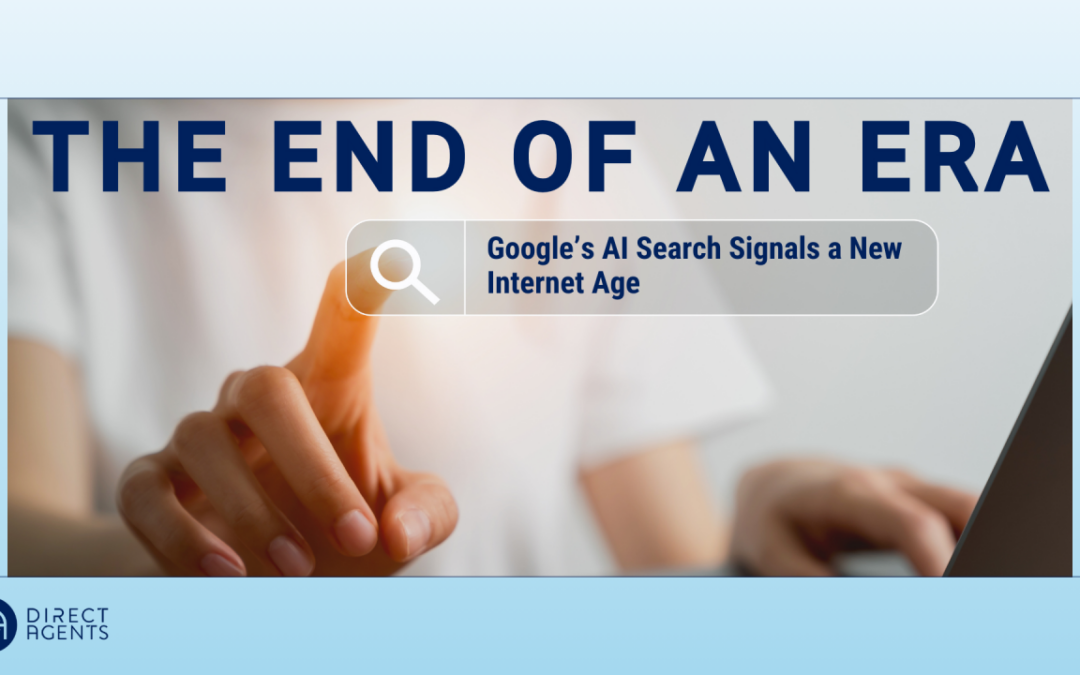We’ve seen the internet change in a thousand ways over the years, but Google’s latest move is a real game-changer. The introduction of AI Search Overviews work by generating AI summaries that appear at the top of search results, directly answering user queries and offering recommendations. With generative AI now embedded in Google’s core search engine and set to reach over a billion users, we’re not just talking about another incremental update. This is the beginning of a seismic shift in how we access, consume, and monetize information online.
Goodbye to the Old Internet Economy
If Google provides comprehensive answers directly within the search page, the incentive for users to click through to external websites diminishes. While Google claims that AI Search Overviews will lead to increased site visits and searches, the long-term impact could be a substantial reduction in traffic for many websites, especially those heavily reliant on search-driven visitors.
Implications for Digital Publishers
Digital publishers are among the most vulnerable to this shift. Analysts predict that Google search traffic could decrease by up to 40%. Websites that have thrived on SEO-driven content, particularly those that compile lists and reviews to capture high search rankings, might see significant traffic loss. Even high-quality news and culture sites, which provide valuable content but rely on search traffic for visibility, could suffer.
Publishers must seek alternative ways to engage and retain audiences, such as through email newsletters, podcasts, and social media. These direct channels can help mitigate the dependence on search traffic, fostering more sustainable and loyal reader relationships.
A New Paradigm for Business Discovery
The implications for businesses, particularly in the B2B and service sectors, are equally major. SEO has been a cornerstone of digital marketing strategies, making it easy for customers to find businesses through search.. With AI-generated recommendations and answers potentially replacing traditional links, businesses must rethink how they maintain online visibility.
One strategic response is to enhance direct engagement with customers. Building a robust presence on various platforms, encouraging newsletter sign-ups, and fostering active social media communities can help maintain visibility and customer relationships independent of Google’s search algorithms.
Google’s Self-Disruption & Monetization Challenge
Here’s where it gets really interesting: With AI Search Overviews, Google is disrupting itself. The company’s cash cow—ad revenue from AdWords and its ad network—is at risk. If traffic to individual websites declines, so too might the demand for Google search ads and display ads on partner sites. Google will need to devise new monetization strategies for Search Overviews to replace this likely revenue loss.
Navigating the New Internet Age
The future of the internet hinges on a delicate balance between AI-driven efficiency and the sustenance of a vibrant, diverse content ecosystem. As AI takes on a more prominent role in our digital lives, we must critically assess its impact on the broader information landscape and ensure that the creators who fuel our digital world continue to thrive. What will the internet look like in a decade? Will AI enhance our access to information or stifle the diversity of voices that make the internet a dynamic space? These questions will shape the next chapter of the internet’s evolution, demanding thoughtful consideration and strategic action from all stakeholders involved.
Want to know more? Get in touch with one of our experts today by contacting [email protected].
Jackson Richards, VP of Strategy, Direct Agents


